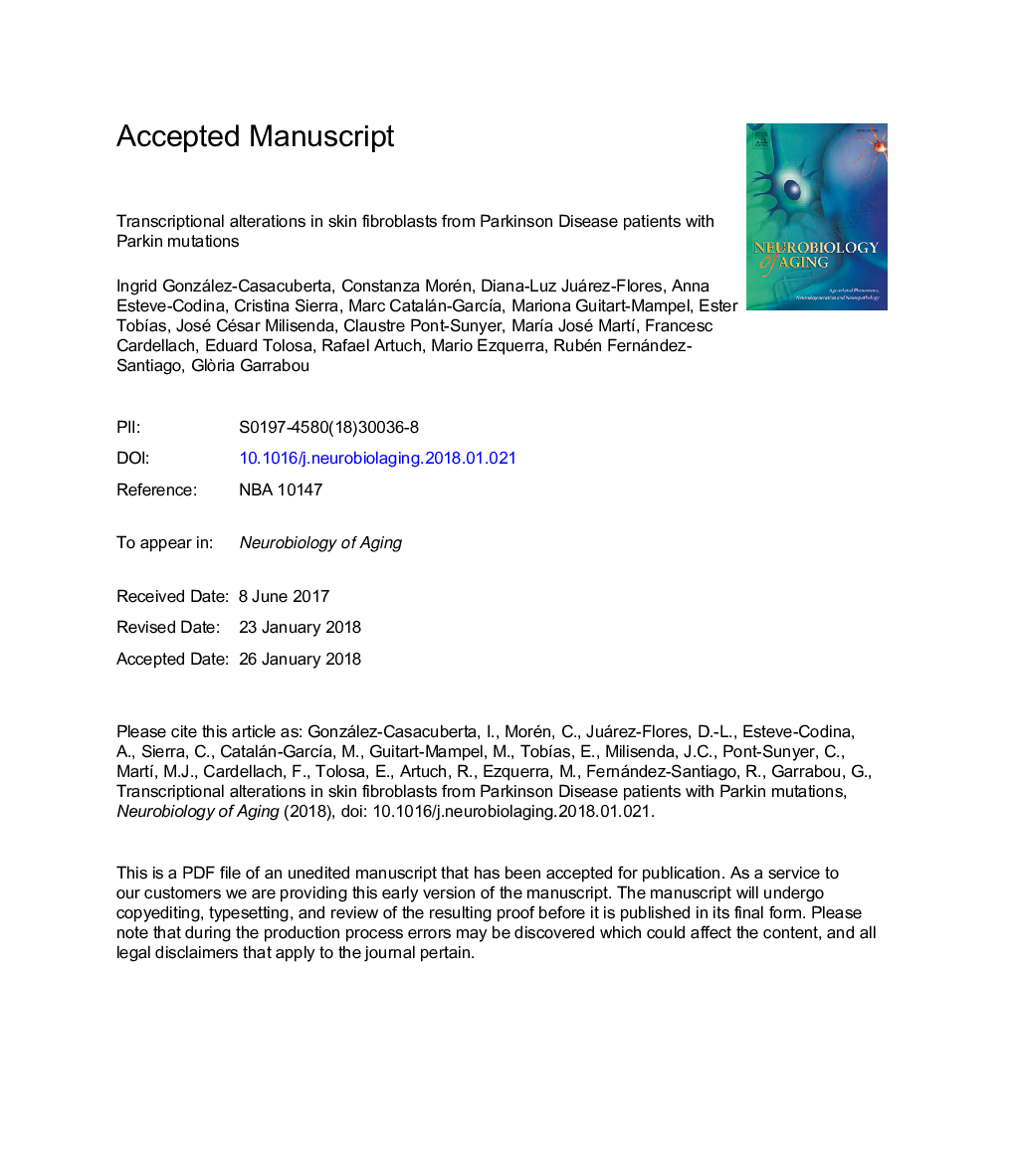| Article ID | Journal | Published Year | Pages | File Type |
|---|---|---|---|---|
| 6803022 | Neurobiology of Aging | 2018 | 62 Pages |
Abstract
Mutations in the parkin gene (PRKN) are the most common cause of autosomal-recessive juvenile Parkinson's disease (PD). PRKN encodes an E3 ubiquitin ligase that is involved in multiple regulatory functions including proteasomal-mediated protein turnover, mitochondrial function, mitophagy, and cell survival. However, the precise molecular events mediated by PRKN mutations in PRKN-associated PD (PRKN-PD) remain unknown. To elucidate the cellular impact of parkin mutations, we performed an RNA sequencing study in skin fibroblasts from PRKN-PD patients carrying different PRKN mutations (n = 4) and genetically unrelated healthy subjects (n = 4). We identified 343 differentially expressed genes in PRKN-PD fibroblasts. Gene ontology and canonical pathway analysis revealed enrichment of differentially expressed genes in processes such as cell adhesion, cell growth, and amino acid and folate metabolism among others. Our findings indicate that PRKN mutations are associated with large global gene expression changes as observed in fibroblasts from PRKN-PD patients and support the view of PD as a systemic disease affecting also non-neural peripheral tissues such as the skin.
Related Topics
Life Sciences
Biochemistry, Genetics and Molecular Biology
Ageing
Authors
Ingrid González-Casacuberta, Constanza Morén, Diana-Luz Juárez-Flores, Anna Esteve-Codina, Cristina Sierra, Marc Catalán-GarcÃa, Mariona Guitart-Mampel, Ester TobÃas, José César Milisenda, Claustre Pont-Sunyer, MarÃa José MartÃ,
